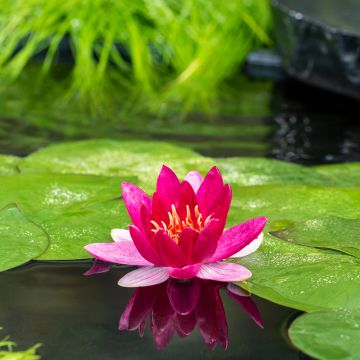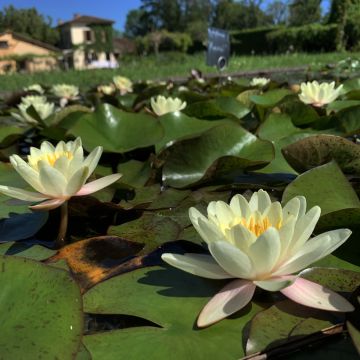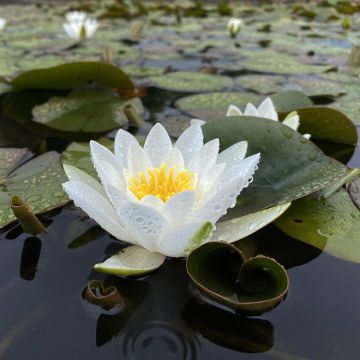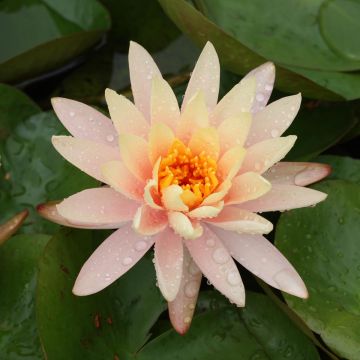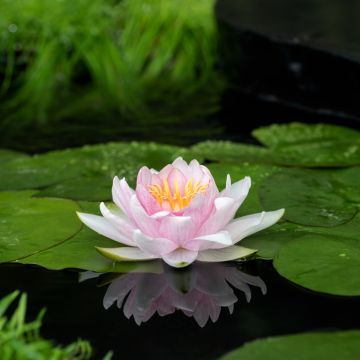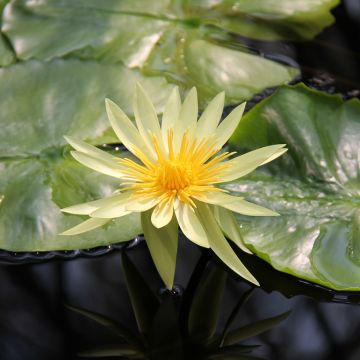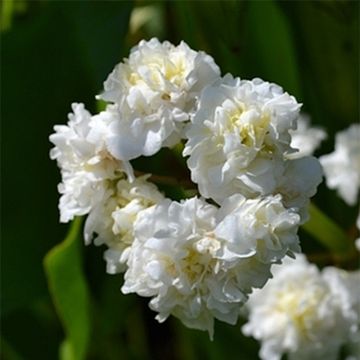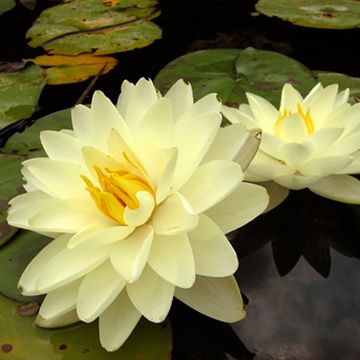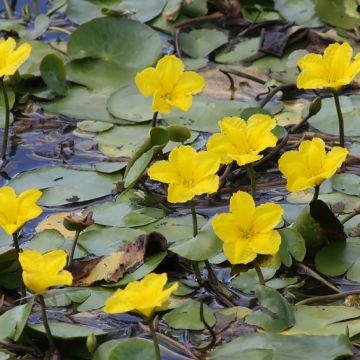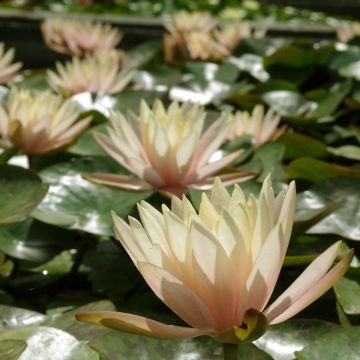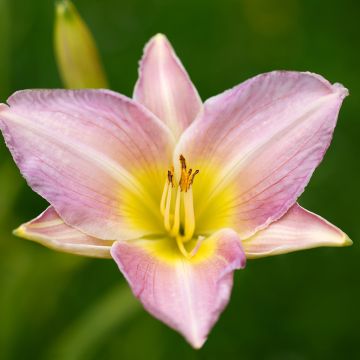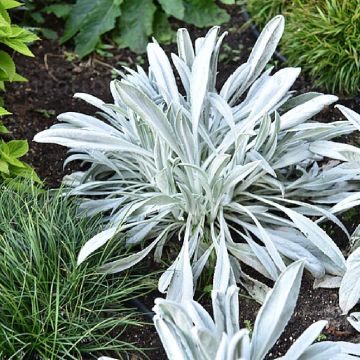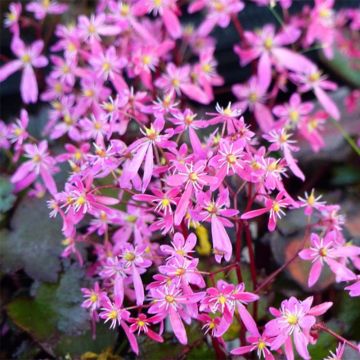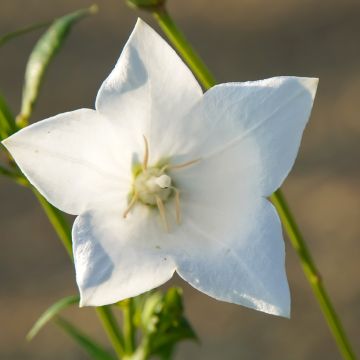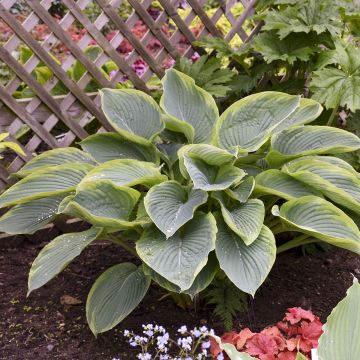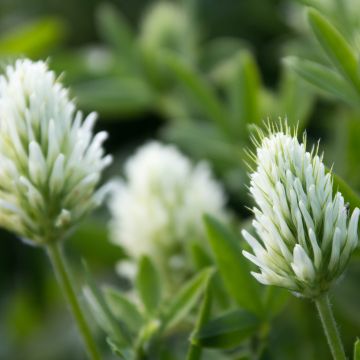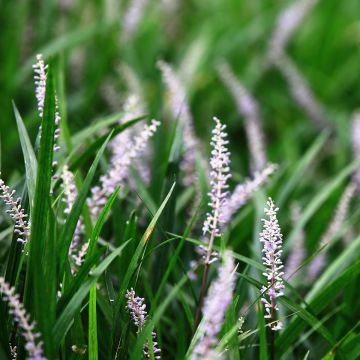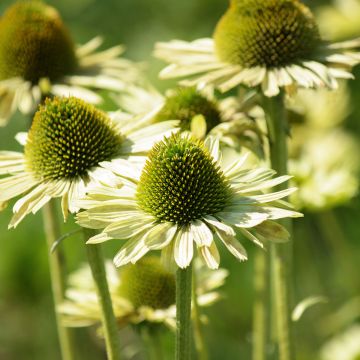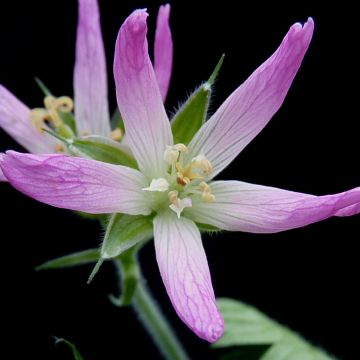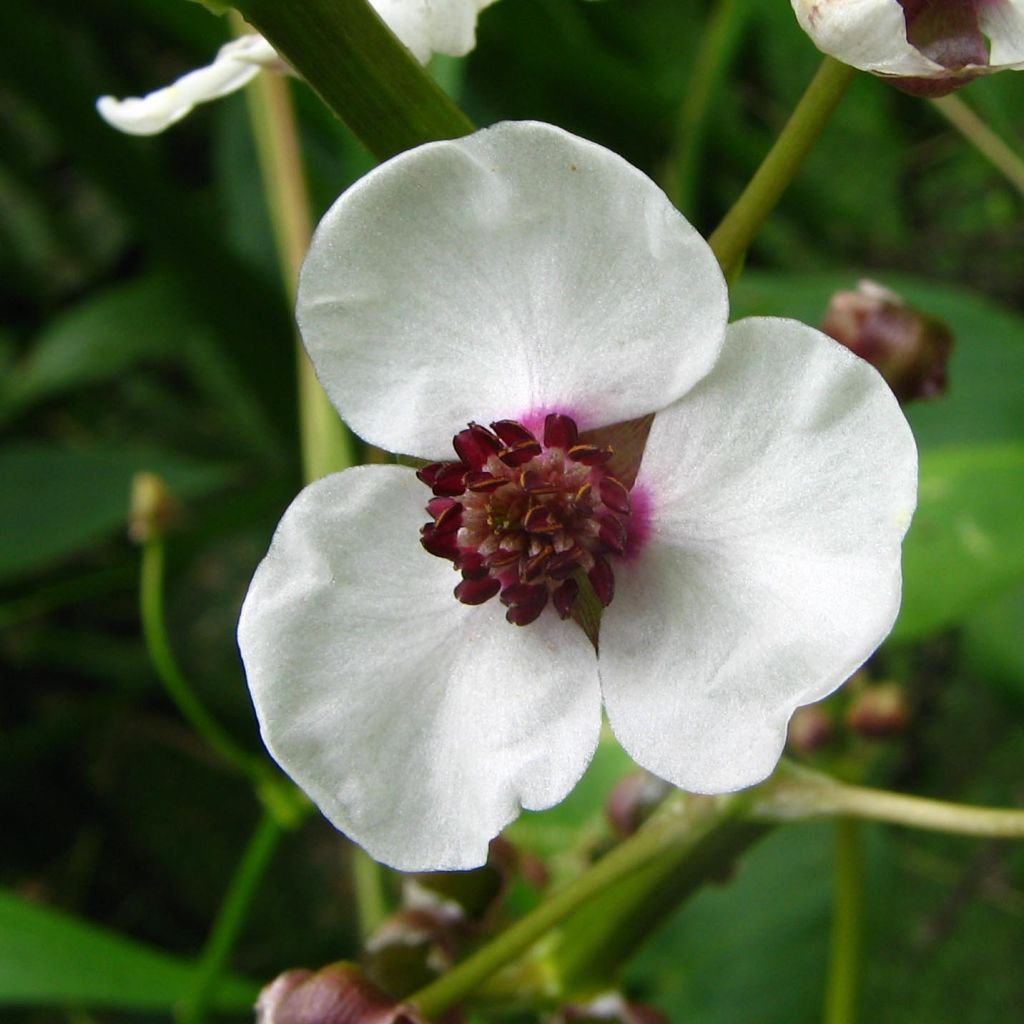

Sagittaria sagittifolia
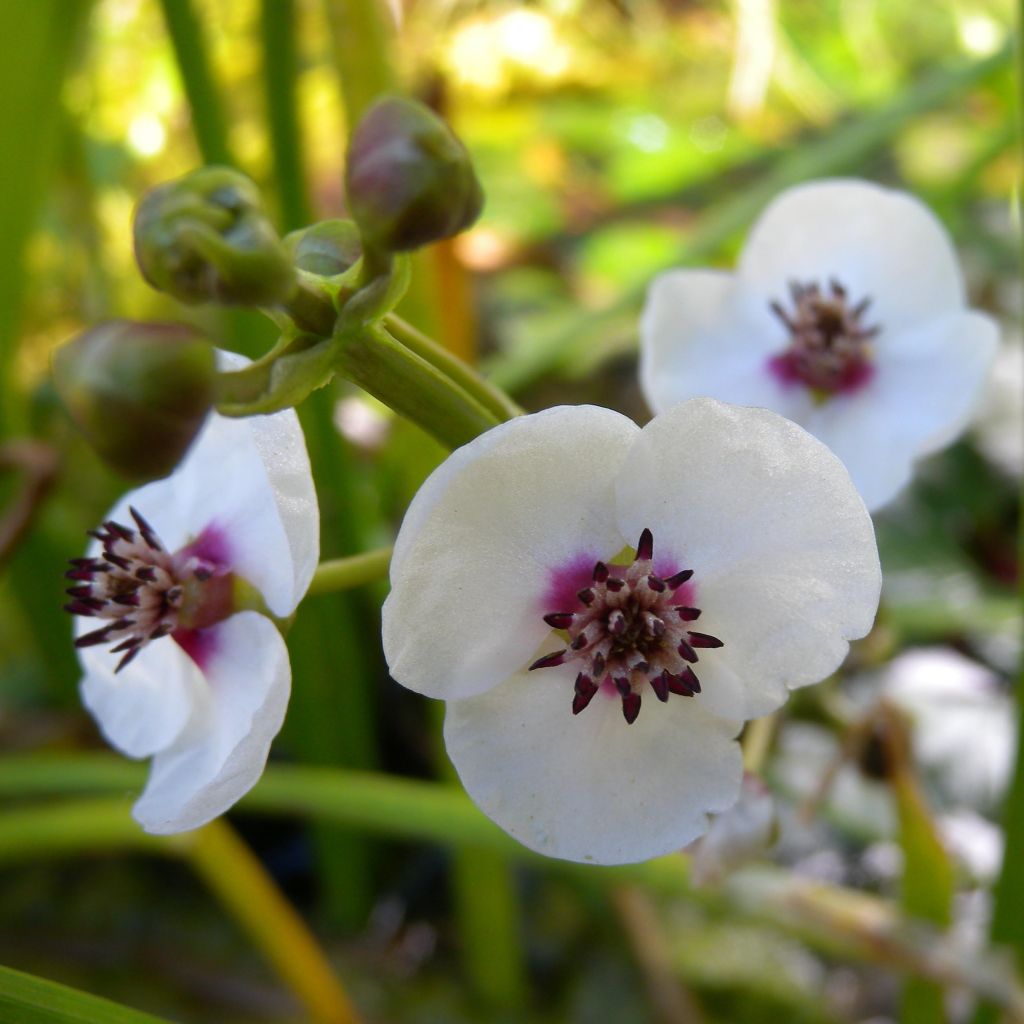

Sagittaria sagittifolia
Sagittaria sagittifolia
Sagittaria sagittifolia
Arrowhead, Swamp Potato, Old World Arrowhead, Duck Potato, Wapato
The plant looks weak and has been out of the bucket and soil for some time judging by its condition. It's an aquatic plant, which is unfortunate. I hope the remaining small piece will recover, but I doubt it.
Romain, 26/05/2024
This item cannot be shipped to the selected country
Delivery charge from €5.90
More information
Schedule delivery date,
and select date in basket
This plant carries a 12 months recovery warranty
More information
We guarantee the quality of our plants for a full growing cycle, and will replace at our expense any plant that fails to recover under normal climatic and planting conditions.
From €5.90 for pickup delivery and €6.90 for home delivery
Express home delivery from €8.90.
Does this plant fit my garden?
Set up your Plantfit profile →
Description
Sagittaria sagittifolia, also known as arrowhead, is an aquatic perennial plant. Sagittarias have dephosphating properties used in water treatment. This species offers white flowers with a purple heart in the middle of its lance-shaped leaves during summer. Hardy, it will be highly decorative in ponds or streams, where it prefers to be planted in full sun at a depth of about 30cm (12in). If the conditions suit it, it will slowly spread through stolons.
Arrowhead belongs to the Alismataceae family. It is a tuberous plant originating from horticulture, 60cm (24in) tall, widespread in the water bodies of temperate regions of Europe, Russia, and China. It blooms in July-August. The flowers are arranged along the stem in whorls of three, with male flowers on top and female flowers below. This plant shows a particularity: it has 3 types of leaves, a phenomenon called leaf polymorphism. The submerged leaves form long ribbons of 1.20m (4ft) and can form real aquatic meadows. The floating leaves are rounded and heart-shaped, while the emergent leaves out of the water are arrow-shaped and acute. The underground stem forms numerous shoots that end in tubercles, which serve for propagation.
Arrowheads are used as dephosphating plants on the edges and in stagnant artificial or natural waters, natural streams, shallow waters, and marshy gardens. To prevent them from becoming too invasive, they can be planted in containers submerged in ponds. The Sagittaria sagittifolia can be used decoratively in a water feature or in an aquatic container on the terrace. This plant is considered invasive in the United States.
Report an error about the product description
Sagittaria sagittifolia in pictures
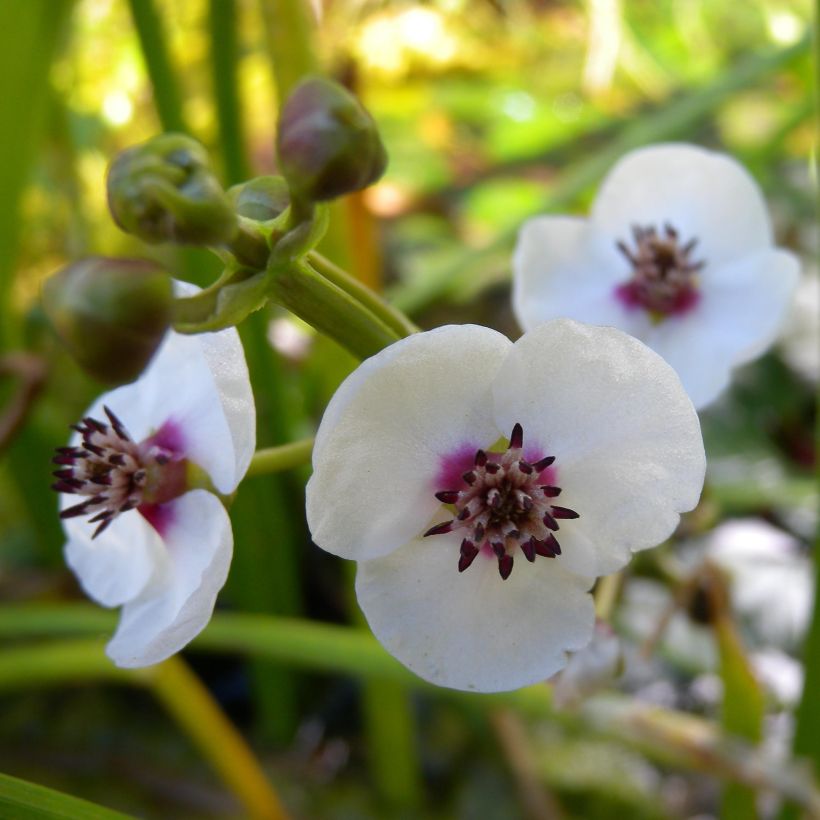

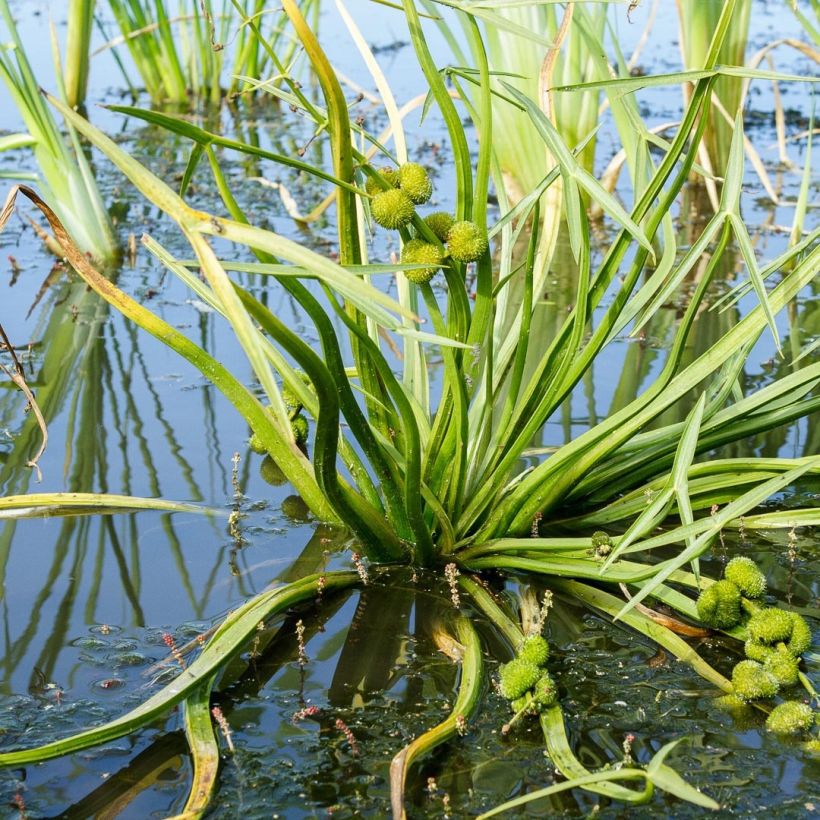

Flowering
Foliage
Plant habit
Botanical data
Sagittaria
sagittifolia
Alismataceae
Arrowhead, Swamp Potato, Old World Arrowhead, Duck Potato, Wapato
Central Europe
Other Aquatic perennials
Planting and care
Plant Sagittaria sagittifolia in rich soil, even clay or loamy clay, slightly alkaline, neutral to slightly acidic. Place it in partial shade or in a sunny location. In nature, these plants grow on the edges of ponds and water points and are inseparable from natural stagnant, shallow waters. Sagittaria with arrow-shaped leaves should be planted at a depth of 30cm (12in), with its stump able to be submerged up to 10cm (4in). It is preferable to clean it in August-September, by cutting back the spreading foliage and removing faded flowers to prevent spontaneous sowing.
Planting period
Intended location
Care
-
, onOrder confirmed
Reply from on Promesse de fleurs
Summer flowering perennials
Haven't found what you were looking for?
Hardiness is the lowest winter temperature a plant can endure without suffering serious damage or even dying. However, hardiness is affected by location (a sheltered area, such as a patio), protection (winter cover) and soil type (hardiness is improved by well-drained soil).

Photo Sharing Terms & Conditions
In order to encourage gardeners to interact and share their experiences, Promesse de fleurs offers various media enabling content to be uploaded onto its Site - in particular via the ‘Photo sharing’ module.
The User agrees to refrain from:
- Posting any content that is illegal, prejudicial, insulting, racist, inciteful to hatred, revisionist, contrary to public decency, that infringes on privacy or on the privacy rights of third parties, in particular the publicity rights of persons and goods, intellectual property rights, or the right to privacy.
- Submitting content on behalf of a third party;
- Impersonate the identity of a third party and/or publish any personal information about a third party;
In general, the User undertakes to refrain from any unethical behaviour.
All Content (in particular text, comments, files, images, photos, videos, creative works, etc.), which may be subject to property or intellectual property rights, image or other private rights, shall remain the property of the User, subject to the limited rights granted by the terms of the licence granted by Promesse de fleurs as stated below. Users are at liberty to publish or not to publish such Content on the Site, notably via the ‘Photo Sharing’ facility, and accept that this Content shall be made public and freely accessible, notably on the Internet.
Users further acknowledge, undertake to have ,and guarantee that they hold all necessary rights and permissions to publish such material on the Site, in particular with regard to the legislation in force pertaining to any privacy, property, intellectual property, image, or contractual rights, or rights of any other nature. By publishing such Content on the Site, Users acknowledge accepting full liability as publishers of the Content within the meaning of the law, and grant Promesse de fleurs, free of charge, an inclusive, worldwide licence for the said Content for the entire duration of its publication, including all reproduction, representation, up/downloading, displaying, performing, transmission, and storage rights.
Users also grant permission for their name to be linked to the Content and accept that this link may not always be made available.
By engaging in posting material, Users consent to their Content becoming automatically accessible on the Internet, in particular on other sites and/or blogs and/or web pages of the Promesse de fleurs site, including in particular social pages and the Promesse de fleurs catalogue.
Users may secure the removal of entrusted content free of charge by issuing a simple request via our contact form.
The flowering period indicated on our website applies to countries and regions located in USDA zone 8 (France, the United Kingdom, Ireland, the Netherlands, etc.)
It will vary according to where you live:
- In zones 9 to 10 (Italy, Spain, Greece, etc.), flowering will occur about 2 to 4 weeks earlier.
- In zones 6 to 7 (Germany, Poland, Slovenia, and lower mountainous regions), flowering will be delayed by 2 to 3 weeks.
- In zone 5 (Central Europe, Scandinavia), blooming will be delayed by 3 to 5 weeks.
In temperate climates, pruning of spring-flowering shrubs (forsythia, spireas, etc.) should be done just after flowering.
Pruning of summer-flowering shrubs (Indian Lilac, Perovskia, etc.) can be done in winter or spring.
In cold regions as well as with frost-sensitive plants, avoid pruning too early when severe frosts may still occur.
The planting period indicated on our website applies to countries and regions located in USDA zone 8 (France, United Kingdom, Ireland, Netherlands).
It will vary according to where you live:
- In Mediterranean zones (Marseille, Madrid, Milan, etc.), autumn and winter are the best planting periods.
- In continental zones (Strasbourg, Munich, Vienna, etc.), delay planting by 2 to 3 weeks in spring and bring it forward by 2 to 4 weeks in autumn.
- In mountainous regions (the Alps, Pyrenees, Carpathians, etc.), it is best to plant in late spring (May-June) or late summer (August-September).
The harvesting period indicated on our website applies to countries and regions in USDA zone 8 (France, England, Ireland, the Netherlands).
In colder areas (Scandinavia, Poland, Austria...) fruit and vegetable harvests are likely to be delayed by 3-4 weeks.
In warmer areas (Italy, Spain, Greece, etc.), harvesting will probably take place earlier, depending on weather conditions.
The sowing periods indicated on our website apply to countries and regions within USDA Zone 8 (France, UK, Ireland, Netherlands).
In colder areas (Scandinavia, Poland, Austria...), delay any outdoor sowing by 3-4 weeks, or sow under glass.
In warmer climes (Italy, Spain, Greece, etc.), bring outdoor sowing forward by a few weeks.

































